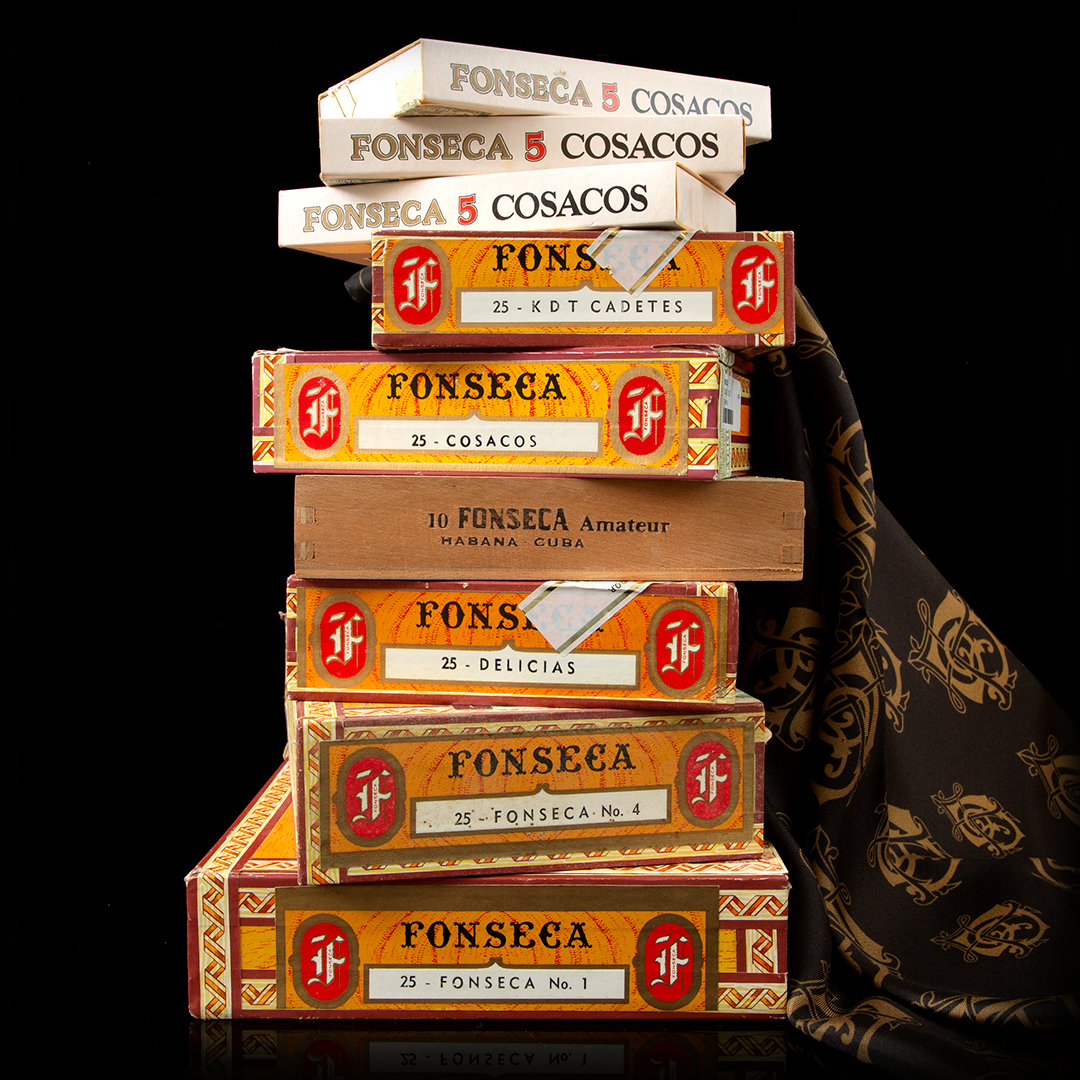Fonseca
The cigar brand that introduced the Japanese paper wrapper.
Like many old Habanos brands, the Fonseca brand was named after its founder, Francisco E. Fonseca.
Dating back to before the Cuban Revolution, it was created in 1892 and officially registered in 1907.
At the beginning, Fonseca cigars were manufactured in a small factory in Havana and did not enjoy real success until the official registration of the brand. With this, Fonseca really took off, leading Francisco E. Fonseca to build a new factory in 1911. From then on, the man was respected and considered an expert on tobacco in Cuba.
This success inspired Federico García Lorca, a Spanish poet and playwright, as well as a prose writer, painter, pianist and composer of the time, who sang "I'll go to Santiago with the blonde head of a Fonseca...".
Like Don Jaime Partagás Ravelo, who had the idea of employing a "lector" to read to the Torcedores in order to make their work less boring and at the same time to promote education, Francisco E. Fonseca had his share of responsibility in terms of innovation in cigar factories. Indeed, he had the brilliant idea of creating a tasting room in his factory, allowing his customers to taste the chosen blends. This allowed him to specialise in making cigars for special occasions such as banquets, receptions and clubs.
We also owe him the wrapping of cigars with thin sheets of Japanese paper, which the brand still uses exclusively today.
Made from the fibres of the paper mulberry tree, soaked in clear river water, thickened and then filtered through a bamboo sieve, "Washi" is a type of paper that has been handmade in Japan since the 7th century. Used to wrap a cigar, it protects the cigar without influencing its flavour in the same way that a cedar leaf can.
In addition to the Japanese paper wrapper, Fonseca was also the first Habanos brand to introduce the tin tube, which appeared in the 1910s, before the introduction of aluminium tubes (Tubos) in the mid-1940s, as we know them today.
The year 1930 was sadly marked by the death of Francisco E. Fonseca. The company was then managed by his widow, Donas Teresa Boetticher, for a few years before she handed over ownership to a company that already owned two small brands that have now disappeared: T. Castañeda and G. Montero.
Thus, in 1940, the Fonseca brand appeared in the register of exporting manufacturers under the ownership of the company Castañeda, Montero, Fonseca S.A.
From then on, the brand became very popular internationally, especially in Spain and Canada. This has allowed Fonseca to continue to this day without any interruption in its production during the Cuban Revolution.
Speaking of production, Fonseca is one of the few Habanos brands with such a high proportion of vitolas introduced at the brand's launch and still in its catalogue today.
Indeed, out of six cigars, only two have been discontinued. The first, which disappeared in the late 1980s, is the Aromas. Its vitola, measuring (40 x 140 mm), does not seem to have a name but was also used until the 1970s by Romeo y Julieta for the Capulets.
The second is the Invictos, an Especiales (45 x 134 mm), a vitola that has now disappeared as it was exclusively produced by Fonseca.
The brand's regular catalogue is now composed of four cigars, all introduced at the launch of the brand: the Cosacos (42 x 135 mm), which we present to you today, the Delicias, a Standard (40 x 123 mm), the KDT Cadetes, a Cadetes (36 x 115 mm) and finally the Fonseca No.1, a Cazadores (43 x 162 mm).
In addition to the regular productions, the brand has been introduced by Habanos to the regional edition programme on two occasions.
The first one dates back to 2010 with the release of Fonseca No.4 in Edición Regional Benelux, a Hermosos No.4 (48 x 127 mm) produced in 1'600 boxes of 25 cigars exclusively for Belgium, the Netherlands and Luxembourg.
The second is L'Amateur Edición Regional Francia, a Gordito (50 x 141 mm) released the following year, in 2011, at 4,000 boxes of 10 cigars exclusively for France.
Fonseca cigars, whether in regular production or from special productions, offer a strength ranging from light to medium. The flavours are generally subtle, delicate and evolve in a herbaceous register. The sweetness is very well balanced with a hint of saltiness.
Fonseca cigars have always been popular with cigar lovers. This has allowed the brand to survive to this day despite its low production volume. Today, all Fonseca cigars are made entirely in the Lázaro Pena factory according to the "Totalmente a Mano" tradition with a long or short filler made from tobacco leaves from the Vuelta Abajo.
To learn more about Fonseca cigars and the history of the brand, we would be delighted to welcome you to our walk-in humidor, where you will find exclusive pieces from the history of the brand, special productions, but also cigars in regular production.
Login to your online account to reserve your item
or contact us at +41 22 552 2799


